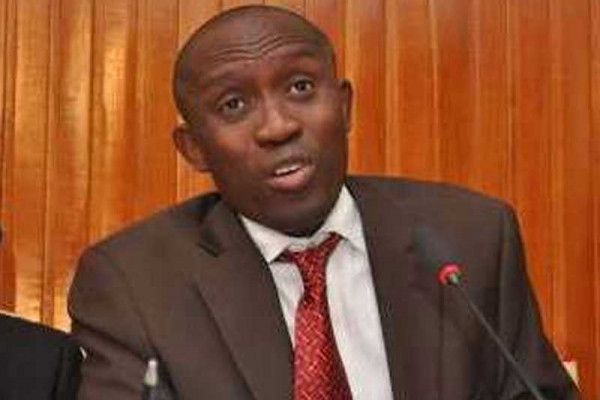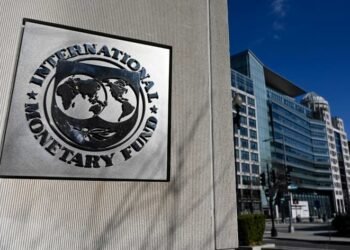An Economist and Director of the Institute of Statistical, Social and Economic Research (ISSER), Professor Peter Quartey has called on the government to embark on massive public education and ensure the proper deployment of the vaccines to reap the benefits that are needed to get the economy on track.
Speaking on PM Express on Thursday night, the ISSER Boss noted that even though he is excited that the country has received its first dose of the vaccines, he is also very conscious because the success of the vaccine will depend on how well the country deploys these vaccines.
“If we get the numbers and we deploy them very well, then certainly, we will reap the benefits. We can break the transmission and certainly the economy will come back to normal, and we are likely to see manufacturing and other sectors pick up. We are likely to see travels, the tourism sector, picks up, many other sectors. And for me that is good; we are likely to create more jobs, put monies in people’s pockets and we will gradually move the economy back to its pre-COVID levels.
“We have to get the numbers in terms of the vaccines and deploy them very well, we need to educate the people; conspiracy theories going around about vaccines and what have you. For the ordinary persons, once they don’t buy into this, they will shy away from taking the vaccine and the goal will be defeated. So, we need a lot of massive education. All the key leaders of intermediations, the traditional leaders, religious leaders need to use their platforms and make sure that we bring everybody on board. Once we get that, our resilience in IT, Pharmaceuticals, agriculture will pick up, and then we can move back on track”.
Prof. Quartey noted that even though the pandemic has taught us a lot of lessons, the country being a developing nation is not fully prepared for another pandemic. He lauded the government for demonstrating good leadership in fighting the pandemic. He noted that going forward the country should always plan and make provisions for other natural occurrences such as floods to reduce the risk that they may pose to the country.
“Nobody planned for this pandemic, even the western countries did not plan for this. Even though they have the resources in place… they did not expect a pandemic of this scale. But I think it has taught us to plan and budget with a pandemic in mind. Luckily for us now, we know what to do”.
Prof. Quartey however noted that even though the pandemic has caused some challenges in the economic activities, he does not expect that to have any significant effect on the growth projections of the country. He explained that the various institutions have factored in the possible risks that the current pandemic will pose should it linger for long.
On his part, the Director of Public Health at the Ghana Health Service (GHS), Dr. Franklin Asiedu Bekoe, who was also a panelist on the program confirmed that the country has received the 600,000 doses of the vaccines which are currently in the nation’s cold-room awaiting distribution to the regional levels.

He clarified that the general vaccination will commence on March 2, 2021, which is expected to be completed within 7 days. He indicated that they will allow for a 5 percent wastage rate and so they will not be able to vaccinate all the 600,000 people. He indicated that the GHS is targeting 43 districts in urban Kumasi, Accra, and Kasoa.
Another panelist who joined the discussions via zoom, was a Pharmacologist & Director-General of the Ghana Standards Authority, Professor Alex Dodoo who also underscored the significant roles played by vaccines in the history of pandemics, noting that scientists and humanity, in general, must be congratulated with the speed with which vaccines for the current pandemic were developed. He is very optimistic that by the end of 2021, Ghana will overcome the current pandemic.
“Vaccines represent one of the most remarkable solutions in public health. Because of vaccines we no longer globally have smallpox, measles is not seen anymore. We know that rumors, anxieties, fake news will be there but… citizens have the right to be concerned; to be questionable about these interventions. The role of the government and we as practitioners is to be able to carefully explain to citizens the basis of the interventions we are rolling out, and why we need everybody on board. To make sure that we are all protected. Because if we are not protected, no one will be protected”.
Furthermore, the CEO of the Ghana Association of Industries, Seth Twum Akwaboah expressed his joy about the arrival of the vaccines in the country noting that it will help businesses overcome the challenges inflicted on their operations by the current pandemic.
“So the point is that we are excited about the vaccine because the pandemic is creating problems for businesses. A lot of businesses are on the edge now, the inputs they expect are not coming in, because other countries they are doing business with are also closing down, traveling around has been very difficult. These are seriously affecting business development. So, now that the vaccines are coming in or coming to release the citizenry, allow businesses to be open up and create demand for our goods and services, will be good news for Ghanaian businesses. So we are seriously looking forward to it”.
He noted that with time Ghanaian companies will be able to produce some of the vaccines locally, but added that for now, it is not possible due to the bureaucratic protocols that must be met before a vaccine can be produced.
All the panelists called on the citizens to corporate with the government and health authorities to get vaccinated so as to help the country return to normal.
READ ALSO : Expand production capacity to take advantage of trade agreements – Prof. Quartey























